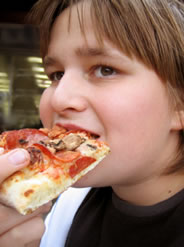
© istockphoto

© istockphoto
Exerting self-control is exhausting. In fact, using self-control in one situation impairs our ability to use self-control in subsequent, even unrelated, situations. What about thinking of other people exerting self-control? Earlier research has shown that imagining actions can cause the same reactions as if we were actually performing them (e.g., simulating eating a disgusting food results in a revolting face, even if no food has been eaten) and psychologists Joshua M. Ackerman and John A. Bargh from Yale University, along with Noah J. Goldstein and Jenessa R. Shapiro from the University of California, Los Angeles explored what affect thinking about other people’s self-control has on our own thoughts and behavior. [continue reading…]